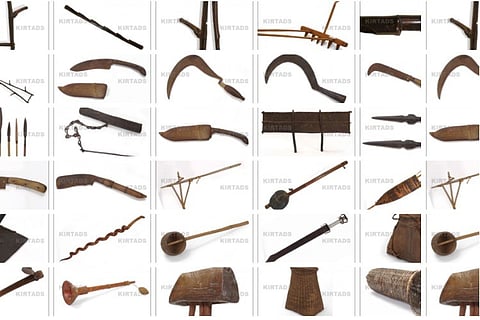

Tribal activists in Kerala recently took to Facebook to decry the central government’s proposal to invest Rs 16 crore to build an Adivasi museum in the state.
Undertaken by the Kerala Institute for Research Training & Development studies of Scheduled Castes and Scheduled Tribes (KIRTADS), the project which aims to celebrate tribal freedom fighters of the state will only serve to further brand the tribal communities as primitive, according to activist Manglu Sreedhar.
Speaking to TNM, Manglu highlighted her concerns about the project.
“Why is it they don’t want to build museums for any other community? What is this obsession with preserving our history and culture? Creating a tribal museum would only serve to brand Adivasis as primitives who live in caves and cover themselves with leaves. It will turn us into exhibits and inhibit our integration into the mainstream community,” she said.
Questioning the government’s logic behind spending Rs 16 crore to build a museum for a living, breathing community which has been denied land, livelihoods, proper housing and food by the very same government, Manglu and her associates wonder how the project will benefit or uplift them in any way.
“Tribals have been facing several issues for generations now. We lack basic education facilities. School dropout rates are high and alcoholism is prevalent among school-going kids. I even know of houses where three or four families share a space that can only accommodate three or four people. Instead of focusing on this, the government wants to build another museum for us,” she said.
Manglu further said that the government policies are also to blame in promoting this perception about tribal people.
“If you look at the KIRTADS website, the photographs there even project us as primal tribes who are living in dire conditions. There is no record of our achievements and progress,” she added.
However, the Director of KIRTADS, Bindu S, believes that the museum would help alter the general impression about tribals among the public, by educating them about the past.
“The public are misinformed about the tribals and their way of life. They only consider them to be marginalized and are wholly unaware of the rich past they have had. There are so many of the tribal myths and legends which are not exposed. We want to mine, document and preserve many aspects of tribal culture such as their oral literature, livelihoods etc. and create authentic data to eliminate public misconceptions about tribals,” she said.
Bindu and her team in KIRTADS aim to create a "living museum" which would be a platform for tribal participants to showcase their traditional arts, crafts and languages.
“They will have a space to showcase their arts. We are also researching on ways to help them build sustainable livelihoods through their oral traditions, culture, arts and crafts,” she said.
When asked if the revenue generated by the museum would go towards tribal welfare schemes, she said, “This is a central government funded project and the revenue would be going to the exchequer.”
This is one of the reasons why, Narayanan M Sankaran, tribal activist and PhD holder from EFLU, believes there are vested interests at play in the project.
“When an entire community is neglected for decades but the government has Rs 16 crores to build a second museum to promote tribal culture, I feel that there are some parties who stand to gain from this. The government is merely using us to make money,” he told TNM.
Both activists believe that the government’s policies are mindless and will further debilitate tribal communities.
“It is utter callousness as they don’t even try to understand what our needs are. If they wanted to promote our culture they could even make a video. If they wanted to give us a platform, it could be anywhere. But no, all they want to do is build a museum and turn us into exhibits for public entertainment,” Narayanan said.
The activists are in discussions with different organizations and will also conduct protests through rallies.
“Our protest is not just limited to social media. We are in talks with certain community-based organizations and NGOs. Further, we will even hold academic discussions and research on the issue to strengthen our argument,” he said.